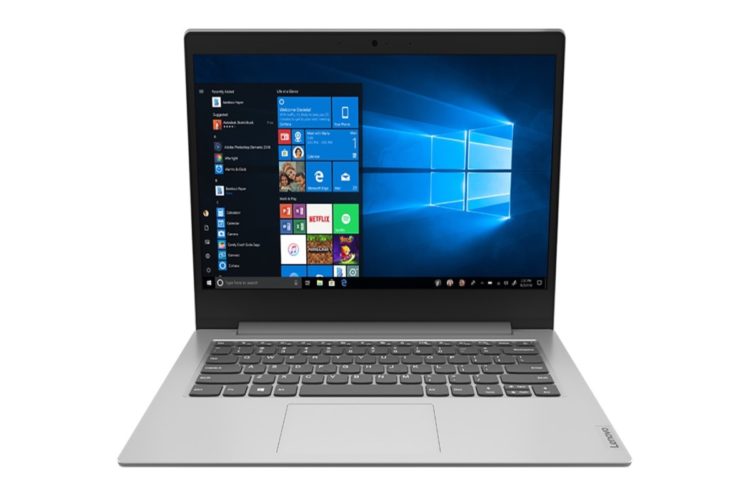Lenovo, the multinational manufacturer of original equipment (OEM), has continued to amaze market watchers, dominating worldwide PC shipments on the back of an increase in demand.
The demand is driven by the COVID-19 pandemic, which has seen more online learning being embraced by schools and students. Also, with more businesses and multinational organizations the world over still asking their staff to operate remotely, the market for personal computers (PCs) has exploded in recent months.
Research firm Gartner’s preliminary data shows that in Q3 2020, worldwide PC shipments totaled 71.4 million units, a 3.6 percent rise from the third quarter of 2019.
According to data from Gartner, China-based Lenovo continues to dominate the PC industry, with its quarterly shipments rising to over 18 million units for the first time ever. HP and Dell are closely followed by Lenovo. Apple, Acer, and ASUS are also ranked among the top sellers.
Although Lenovo experienced a slight decrease in desktop shipments, Gartner explains that, helped by strong growth in China, demand for Lenovo desktops still fared better than those of HP and Dell. Research also reveals that HP witnessed a substantial decrease as desktop shipments decreased by 30 percent year on year, resulting in growth in the third quarter of 2020 of just 0.7 percent. Moreover, with a 4.6 percent fall, Dell’s sequence of 17 consecutive quarters of year-over-year growth ended in Q3 2020. Gartner notes that its focus on business over consumer PCs is reflected in this growth.
Josh Yang-Ki, a South Africa-based global research analyst, says Lenovo is doing exceptionally well, even with all the obstacles of being able to meet demands internationally. He noted that in the last five years, the brand has been doing well both in SA and in other African countries, even as he described Lenovo as a leading source of PCs and other digital devices.
” Among other multinational brands in Africa, Lenovo has maintained leadership. Their uncompromising position on quality and cutting-edge technology can be attributed to this. In the global PC supply chain, it will be hard to beat Lenovo as they expend a lot of money to maintain the pace. “‘” he said.
Josh Yang-Ki, a South Africa-based global research analyst, says Lenovo is doing exceptionally well, even with all the obstacles of being able to meet demands internationally. He noted that in the last five years, the brand has been doing well both in SA and in other African countries, even as he described Lenovo as a leading source of PCs and other digital devices.
” Among other multinational brands in Africa, Lenovo has maintained leadership. Their uncompromising position on quality and cutting-edge technology can be attributed to this. In the global PC supply chain, it will be hard to beat Lenovo as they expend a lot of money to maintain the pace. “‘” he said.
With schools closed in desperate need of e-learning solutions and companies needing to keep their workers working from home, in the third quarter of 2020, Africa had woken up late and observed an increase in demand for PCs. The planet was still in the grip of global scarcity by then, a worrisome situation in which choices could not be sought for anyone who could pay.
Vice President, Konga Bulk, Mr. K. Johnson, revealed that the number, which had always been massive, has recently taken a bashing, providing an insight into the real data of PCs and laptops that Konga is selling due to its position as the market leader.
” Now, when we put an order for 100,000 units, in two or three months, we receive barely around 15,000. But because of our contribution to major OEMs, we have enjoyed their help to fill the void and relieve the needs of those who accept online learning and those who work from home in the corporate market. In Konga, Executive Management has an internal resolution and it is part of our CSR-not to benefit in this time of scarcity ” But we hope things will soon improve, as the scarcity of components and other hardware decreases.”
Furthermore, even as he singled out Lenovo for special praise, he hailed the partner OEMs.
” We loved the immense assistance of Lenovo, more than anyone else.
Despite the extreme shortage, this has gone a long way in helping us support students who depend on e-learning and employees working from home. Other OEMs, such as HP, our long-term partners, Dell and others, have also been very helpful, but the problem of components remains a challenge.’
Johnson says it’s hard to tell when Africa should expect the current shortage to abate.
Orders placed as of August 2020 have yet to be serviced and delivery dates from March to July 2021 are provided by OEMs. It’s so grim, but we’re hopeful things could look up soon,’ he said.














